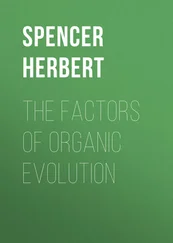If, after contemplating these analogies of structure, we inquire whether there are any such analogies between the processes of organic change, the answer is—yes. The causes which lead to increase of bulk in any part of the body-politic, are of like nature with those which lead to increase of bulk in any part of an individual body. In both cases the antecedent is greater functional activity consequent on greater demand. Each limb, viscus, gland, or other member of an animal, is developed by exercise—by actively discharging the duties which the body at large requires of it; and similarly, any class of labourers or artisans, any manufacturing centre, or any official agency, begins to enlarge when the community devolves on it more work. In each case, too, growth has its conditions and its limits. That any organ in a living being may grow by exercise, there needs a due supply of blood. All action implies waste; blood brings the materials for repair; and before there can be growth, the quantity of blood supplied must be more than is requisite for repair. In a society it is the same. If to some district which elaborates for the community particular commodities—say the woollens of Yorkshire—there comes an augmented demand; and if, in fulfilment of this demand, a certain expenditure and wear of the manufacturing organization are incurred; and if, in payment for the extra quantity of woollens sent away, there comes back only such quantity of commodities as replaces the expenditure, and makes good the waste of life and machinery; there can clearly be no growth. That there may be growth, the commodities obtained in return must be more than sufficient for these ends; and just in proportion as the surplus is great will the growth be rapid. Whence it is manifest that what in commercial affairs we call profit , answers to the excess of nutrition over waste in a living body. Moreover, in both cases when the functional activity is high and the nutrition defective, there results not growth but decay. If in an animal, any organ is worked so hard that the channels which bring blood cannot furnish enough for repair, the organ dwindles: atrophy is set up. And if in the body-politic, some part has been stimulated into great productivity, and cannot afterwards get paid for all its produce, certain of its members become bankrupt, and it decreases in size.
One more parallelism to be here noted, is that the different parts of a social organism, like the different parts of an individual organism, compete for nutriment; and severally obtain more or less of it according as they are discharging more or less duty. If a man's brain be overexcited it abstracts blood from his viscera and stops digestion; or digestion, actively going on, so affects the circulation through the brain as to cause drowsiness; or great muscular exertion determines such a quantity of blood to the limbs as to arrest digestion or cerebral action, as the case may be. So, likewise, in a society, great activity in some one direction causes partial arrests of activity elsewhere by abstracting capital, that is commodities: as instance the way in which the sudden development of our railway-system hampered commercial operations; or the way in which the raising of a large military force temporarily stops the growth of leading industries.
The last few paragraphs introduce the next division of our subject. Almost unawares we have come upon the analogy which exists between the blood of a living body and the circulating mass of commodities in the body-politic. We have now to trace out this analogy from its simplest to its most complex manifestations.
In the lowest animals there exists no blood properly so called. Through the small assemblage of cells which make up a Hydra , permeate the juices absorbed from the food. There is no apparatus for elaborating a concentrated and purified nutriment, and distributing it among the component units; but these component units directly imbibe the unprepared nutriment, either from the digestive cavity or from one another. May we not say that this is what takes place in an aboriginal tribe? All its members severally obtain for themselves the necessaries of life in their crude states; and severally prepare them for their own uses as well as they can. When there arises a decided differentiation between the governing and the governed, some amount of transfer begins between those inferior individuals who, as workers, come directly in contact with the products of the earth, and those superior ones who exercise the higher functions—a transfer parallel to that which accompanies the differentiation of the ectoderm from the endoderm. In the one case, as in the other, however, it is a transfer of products that are little if at all prepared; and takes place directly from the unit which obtains to the unit which consumes, without entering into any general current.
Passing to larger organisms—individual and social—we meet the first advance on this arrangement. Where, as among the compound Hydrozoa , there is a union of many such primitive groups as form Hydræ ; or where, as in a Medusa , one of these groups has become of great size; there exist rude channels running throughout the substance of the body: not, however, channels for the conveyance of prepared nutriment, but mere prolongations of the digestive cavity, through which the crude chyle-aqueous fluid reaches the remoter parts, and is moved backwards and forwards by the creature's contractions. Do we not find in some of the more advanced primitive communities an analogous condition? When the men, partially or fully united into one society, become numerous—when, as usually happens, they cover a surface of country not everywhere alike in its products—when, more especially, there arise considerable classes which are not industrial; some process of exchange and distribution inevitably arises. Traversing here and there the earth's surface, covered by that vegetation on which human life depends, and in which, as we say, the units of a society are imbedded, there are formed indefinite paths, along which some of the necessaries of life occasionally pass, to be bartered for others which presently come back along the same channels. Note, however, that at first little else but crude commodities are thus transferred—fruits, fish, pigs or cattle, skins, etc.: there are few, if any, manufactured products or articles prepared for consumption. And note also, that such distribution of these unprepared necessaries of life as takes place, is but occasional—goes on with a certain slow, irregular rhythm.
Further progress in the elaboration and distribution of nutriment, or of commodities, is a necessary accompaniment of further differentiation of functions in the individual body or in the body-politic. As fast as each organ of a living animal becomes confined to a special action, it must become dependent on the rest for those materials which its position and duty do not permit it to obtain for itself; in the same way that, as fast as each particular class of a community becomes exclusively occupied in producing its own commodity, it must become dependent on the rest for the other commodities it needs. And, simultaneously, a more perfectly-elaborated blood will result from a highly specialized group of nutritive organs, severally adapted to prepare its different elements; in the same way that the stream of commodities circulating throughout a society, will be of superior quality in proportion to the greater division of labour among the workers. Observe, also, that in either case the circulating mass of nutritive materials, besides coming gradually to consist of better ingredients, also grows more complex. An increase in the number of the unlike organs which add to the blood their waste matters, and demand from it the different materials they severally need, implies a blood more heterogeneous in composition—an a priori conclusion which, according to Dr. Williams, is inductively confirmed by examination of the blood throughout the various grades of the animal kingdom. And similarly, it is manifest that as fast as the division of labour among the classes of a community becomes greater, there must be an increasing heterogeneity in the currents of merchandize flowing throughout that community.
Читать дальше












